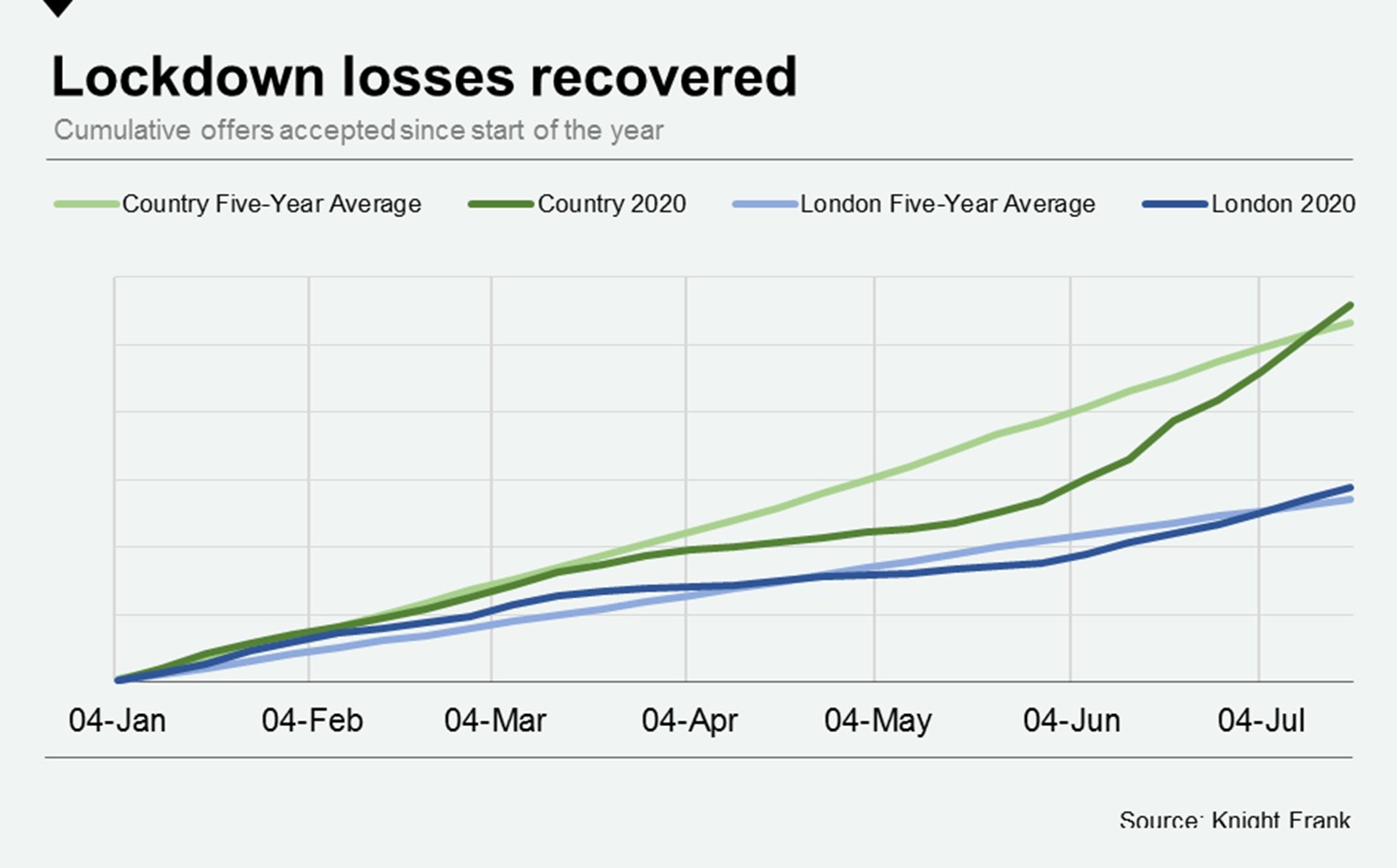Residential Market Outlook: Week Beginning 27 July 2020
Exchanges are unsurprisingly down on 2019 but there are signs that normality is returning, says Tom Bill
2 minutes to read
Last week the government published figures showing UK property sales in June were 36% lower than 12 months ago.
This was an improvement on May (-50%) and April (-57%).
Transactions are bottoming out but it begs the obvious question: when will the market return to normal levels of activity?
As discussed previously, getting to the point of exchange is taking longer and not enough time has passed in the two months since the market re-opened for transaction volumes to recover fully.
Things are moving in the right direction though. In the week ending 18 July, the number of UK exchanges was 18% below the five-year average, Knight Frank data shows. That compares to an equivalent decline of 42% in mid-June.
The rising number of offers accepted also signals that exchanges will increase – unless deals start falling through at an unusually high rate. The number of properties going under offer reached a 20-year high in June, showing just how strongly the market has rebounded.
Furthermore, the cumulative number of offers accepted since the start of the year is now above the five-year average, as the below chart shows. It also demonstrates that London had a bigger post-election bounce whereas country markets came out of lockdown more quickly. On this metric alone, both markets had recouped their lockdown losses by early July.

How long will it continue? It feels like a reasonable assumption that the trend will go on through the summer months. We looked last week at how strong supply and demand indicators mean it will be no ordinary summer this year.
However, the acceleration we have seen will naturally slow. There are also the unknown quantities of a second wave of Covid-19 and the economic fallout from the pandemic.
The UK will officially be declared to have entered a recession next month. Recessions are not normally good news for the property market but given how strongly it is performing, this is also unlikely to be any ordinary recession.